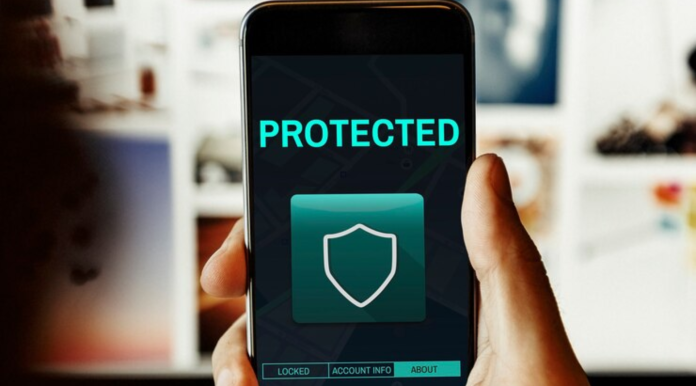In today’s increasingly digital world, mobile apps have become an essential part of our daily lives. From social media to digital banking, we rely on these tools to connect us, manage our finances, and get important tasks done. However, as our reliance on them grows, so do concerns about data privacy and security.
In this scenario, it is crucial to understand what risks we are taking when installing and using certain applications. Without a doubt, many apps collect and store sensitive information, such as location, passwords and banking details. Therefore, it is up to each user to know how much to trust and how to protect their personal data from virtual threats.
How apps handle your data and why you should care
First, it is important to note that many applications operate through the mass collection of data. This data, when poorly managed, can be used for commercial purposes without the proper consent of users. Furthermore, it is not uncommon for security breaches to put personal information at risk, leaving millions of people vulnerable to scams and fraud.
When apps access information like contacts, photos, location, and passwords, it’s up to the user to actively monitor what’s being shared. Therefore, understanding each platform’s security practices is an essential first step to avoiding unpleasant surprises.
1. WhatsApp
THE WhatsApp is one of the most popular messengers in the world, but this also makes it a constant target for cyberattacks. First of all, it is important to mention that the app uses end-to-end encryption, which theoretically protects the content of messages. However, despite this protection, data such as metadata (sending and receiving times, frequent contacts and location) are still collected and can be shared with other companies.
Therefore, it is crucial that users pay attention to their app’s privacy settings. Adjusting location permissions, disabling automatic backups, and enabling two-step authentication are some important steps to enhance security.
2. TikTok
THE TikTok, famous for its short and viral videos, is often the target of criticism when it comes to privacy. First of all, it is worth noting that the platform collects a vast amount of information, including geographic location, browsing history and content consumption preferences. As a result, concerns about the use of this data for commercial or even governmental purposes are common.
In this context, it is essential that users constantly review the permissions granted to the application. In addition, it is recommended not to link TikTok to other social networks and to limit the exposure of personal data within the platform as much as possible.
3. Instagram
THE Instagram, one of the most widely used apps in the world, is also known for collecting and using personal data to offer personalized advertising experiences. Initially, it is important to understand that Instagram's algorithm tracks not only the content you consume within the app, but also your browsing habits outside of it.
As such, users need to adjust their privacy settings and limit data sharing with third parties. Using two-step authentication, reviewing shared location information, and disabling camera and microphone permissions when not in use are good practices.
4. Google Maps
THE Google Maps is an indispensable tool for navigation, but its constant use can pose privacy risks. For example, the app collects real-time data about your location, routes taken, and even frequently visited places. This data can be used to personalize services and offers, but it can also represent a vulnerability in the event of a leak.
Therefore, it is up to the user to disable location history and limit permissions when possible. Another important suggestion is to periodically review Google Activity to monitor what information is being stored.
5. Telegram
THE Telegram WhatsApp is widely considered a secure alternative to WhatsApp, but you need to understand its strengths and weaknesses. Firstly, it offers the option of secret chats with end-to-end encryption. However, not all conversations on the app have this level of protection, as regular chats use server-level encryption.
Therefore, it is essential that users know how to differentiate between these types of conversations and opt for secret chats when dealing with sensitive information. Furthermore, activating two-step verification and reviewing active sessions in the app are good practices to ensure a more secure experience.
How to take advantage of features without sacrificing security
There’s no doubt that taking advantage of the benefits of modern apps requires a certain degree of caution. First, it’s a good idea to always read privacy policies before installing new apps. Additionally, keeping your devices up to date ensures that you’re protected against known vulnerabilities.
Another crucial point is to manage permissions carefully. Do not grant unrestricted access to the camera, microphone or location without a clear justification. Furthermore, use strong passwords and do not reuse old combinations across multiple platforms.
Frequently Asked Questions (FAQ)
1. How do you know if an application is collecting inappropriate data?
Check the permissions requested during installation and consult the app's privacy policies. Additionally, use security apps to monitor suspicious behavior.
2. Does end-to-end encryption guarantee complete security?
While it is an important layer of protection, end-to-end encryption does not protect against metadata or leaks outside of the conversation environment.
3. How important is two-step authentication?
Two-factor authentication adds an extra layer of security by requiring a second verification factor in addition to the traditional password.
4. Are free apps less secure than paid ones?
Not necessarily, but free apps often monetize through advertising and data collection, which can pose additional risks.
5. What to do in case of a data leak?
Change your passwords immediately and monitor your accounts for suspicious activity. Consider using a password manager to enhance security.
Conclusion
Ultimately, trusting the apps we use every day is a matter of balancing convenience and caution. While it’s virtually impossible to completely avoid data collection, it’s possible to minimize the risks through good security practices. So, frequently review your app permissions, keep your devices up to date, and, whenever possible, opt for solutions that prioritize user privacy.


